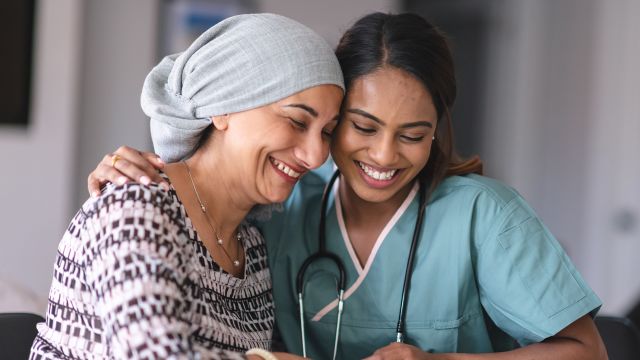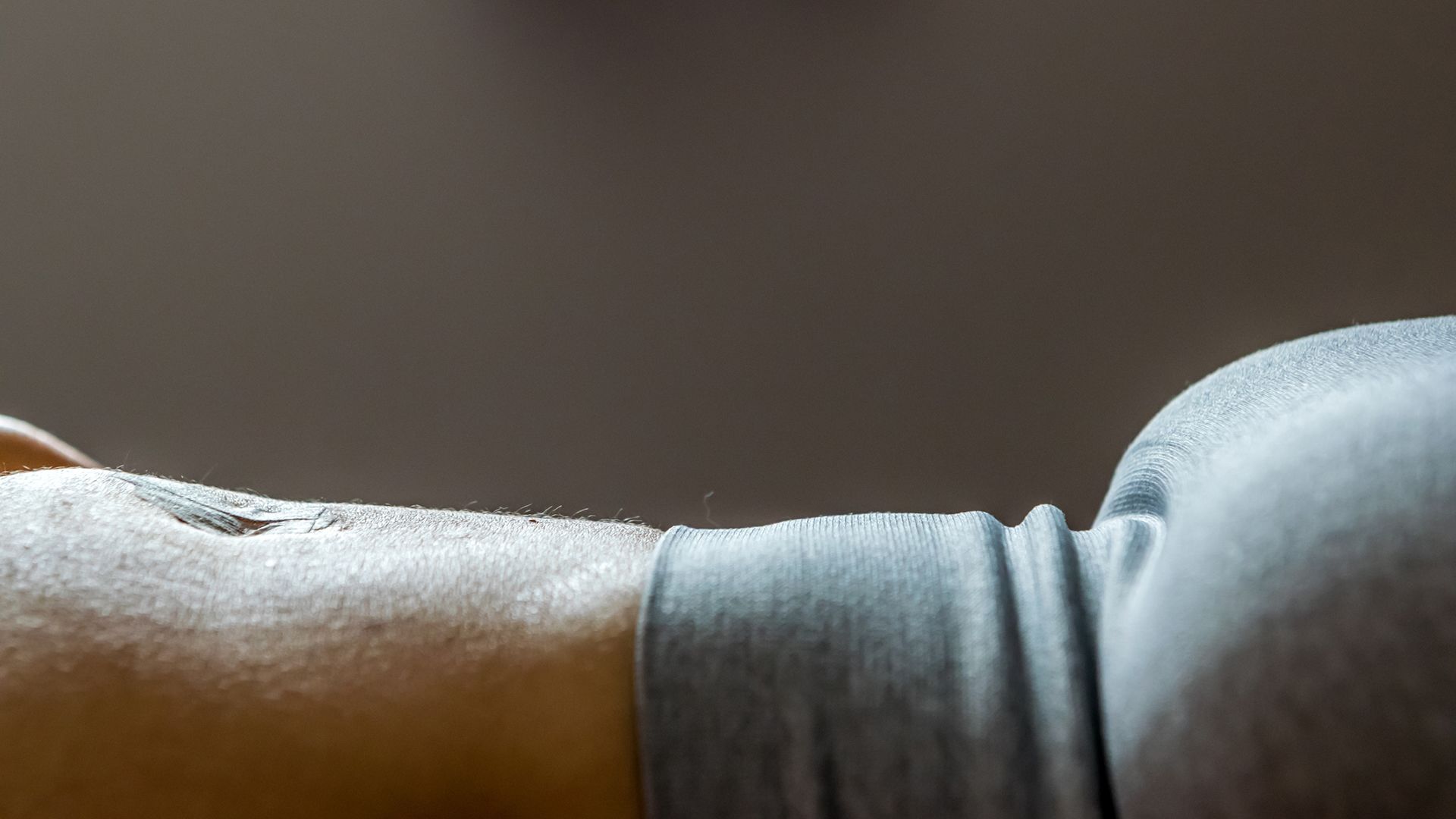Updated on February 11, 2025
From the moment your first symptoms appear until long after you reach remission, uncertainty is often a constant feature of the cancer experience. Not knowing what the future holds can sometimes feel more overwhelming than getting bad news. It may be difficult to heal and move on if you’re constantly wondering what if:
- The treatment doesn’t work
- It has painful side effects
- You won’t be able to have children afterwards
- The cancer grows back
Uncertainty also comes from having to put your personal life on hold. The time and energy that cancer demands can mean needing to step away from your career, friendships, and aspirations, without knowing for how long.
“A cancer diagnosis is a life-defining event,” says Michael Tees, MD, a hematologist oncologist at Colorado Blood Cancer Institute at Presbyterian St. Luke’s Medical Center in Denver, Colorado. “People often tell me they remember the exact time, date and what was happening when they received their diagnosis. They remember because, in that moment, they were faced with the possibility of death. But having cancer today doesn’t mean what it did in the past.”
With that in mind, here’s why rethinking the meaning of cancer can help you cope with uncertainty, along with tips and resources to ease your anxiety.
How cancer care has changed
People often think of worst-case scenarios when they’re diagnosed because of previous experiences with sick relatives, or the way cancer is portrayed in the media, says Tees. But today, many treatments are personalized, using your genes or immune system to target cancer cells more effectively than older treatment methods. And thanks to improvements in palliative care, or the field dedicated to comfort and pain relief, it’s possible to stay comfortable throughout every cancer stage as well.
It’s also possible to live with advanced or incurable cancer for years, with many older adults now passing away with cancer, rather than from it. In fact, the overall rate of cancer deaths in the United States has decreased by 34 percent since 1991, according to the American Cancer Society.
But though there are many reasons to hope for good news at your next appointment, living like you could hear the worst news is one of the most powerful ways to cope with uncertainty. Mending broken relationships, practicing spirituality, and starting each day with a sense of purpose can make the worst-case scenarios less scary. These practices are also science-backed ways to help reduce stress and boost your immune system.
Plan ahead for days of big uncertainty
Your anxiety might be most severe before medical tests, especially if those tests will determine your cancer stage or treatment outcome. As testing days move closer on the calendar, allow yourself to ride out any emotions that surface, even if you don’t fully understand them. Appointments tend to bring up difficult memories and trigger surprising emotions, regardless of how well you’re coping overall.
Before the day arrives, a little preparation can help keep your anxiety to a minimum:
Plan your trip ahead of time
Leave early; transportation challenges will just add unnecessary stress to your day. Bring snacks and blankets for comfort, headphones for soothing music, distractions like an adult coloring book and, if you’d like, a prayer book for spiritual support.
Bring a waiting room buddy
Tell them what they can do for you. You might want to hear jokes, gossip, watch funny videos, or simply cry, but don’t assume they can guess which kind of support you need.
Write down your questions
When emotions are high, you may not remember your most important concerns. Keep a running list of questions and bring it with you to appointments. Since you might not remember everything your doctor says, ask your waiting room buddy to take notes for you.
Being honest with your oncologist about the type of information you’d like to hear is also a key way to prevent stress, says Tees.
“Sometimes people don't want to know a lot,” he explains. “Telling them too much would be unhealthy. Others want to know everything, from the exact size of their mass to every detail of their treatment plan. Determine how much you’d like to hear and share that information with your cancer team.”
Turn worry into action
An especially hard part of living with uncertainty is losing a sense of control over your future, says Tees. One way to regain control is to play an active role in your care: Read about your meds, speak up if you’re uncertain about treatments, take notes at appointments.
Another way is to take control is to do everything you can to stay fit and well.
Eat a lean, mostly plant-based diet
Follow the advice of your cancer care team or nutritionist. Include plenty of nutrient-dense foods like nut butters and protein-rich shakes to boost your energy and help your body fight the cancer. Try these expert tips to enjoy eating, despite chemotherapy side effects.
Exercise daily
Even a small amount of activity can boost your mood, reduce anxiety and increase your appetite. If you haven’t exercised in a while, start with a short walk before dinner and add a few extra minutes each day.
Practice relaxation techniques
Look for effective ways to calm yourself in the moment and for the long-term. Mindfulness, breathing exercises, visualization, aromatherapy, and distractions like listening to music can help you manage stress. Experiment until you find one or multiple methods that work best for you.
Getting outdoors with your family is another meaningful way to take action. It’s a proven stress buster, a chance to spend quality time with loved ones and an escape from all things medical.
Talking to others can help
Your family and friends might not know that you’re grappling with uncertainty. But they won’t be able to support you unless you tell them how you’re feeling. “People who put on a brave face often struggle because they don’t ask for the help they need,” says Tees. “It’s important to recognize that this is a different time in your life; you’re allowed to ask for help.”
“It can also save months of anxiety if you tell your oncologist about your concerns,” he adds. They might be able to put your worries to rest by simply explaining your prognosis or an upcoming test more clearly. They can also refer you to a counselor to identify and address any harmful thought patterns you’re experiencing. Joining an online or in-person support group can let you meet others with similar experiences and find comfort in sharing your stories.
The most important thing you can do is to ask for help when you need it. You don’t have to face the uncertainty alone, says Tees.






